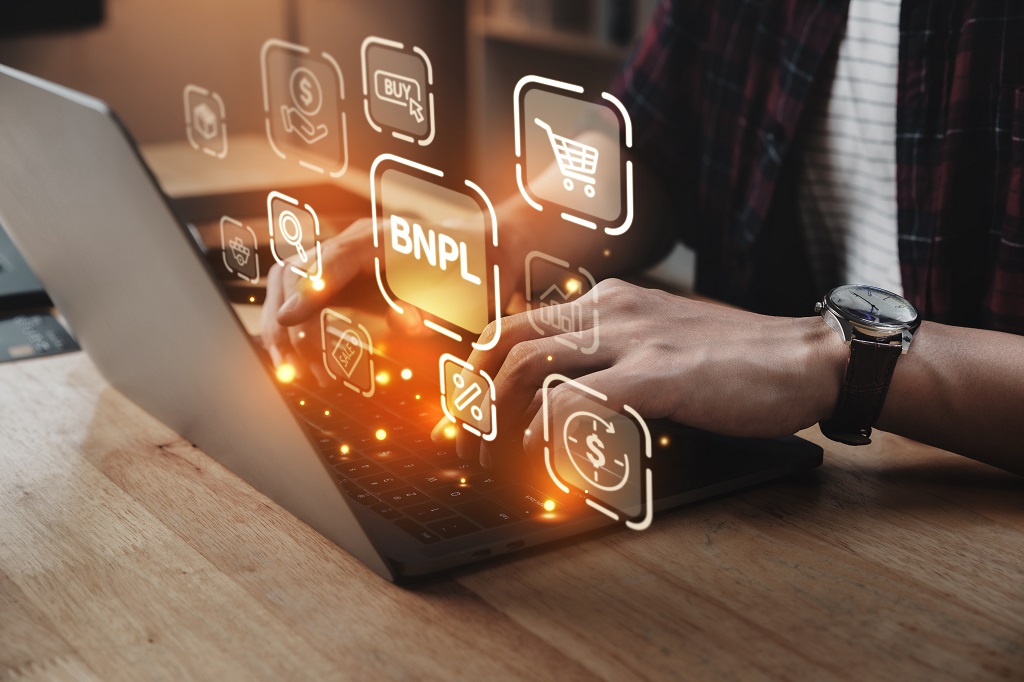
Three quarters of UK consumers consider themselves to be financially literate when it comes to their understanding of the implications of using BNPL but 24 per cent still require better understanding of the schemes, says ECOMMPAY, the payment service provider and direct bank card acquirer.
In its study with Censuswide, more than half of business leaders (54 per cent) still feel they are facing various challenges in supporting the online financial literacy of its consumers and partners. Only 27 per cent of businesses surveyed felt their efforts to educate consumers about financial tools offered was successful and 26 per cent expressed it was difficult executing policies to help with financial literacy.
ECOMMPAY’s research reveals that 64 per cent of consumers feel financially literate when it comes to open banking and understanding its payment option implications. This is in comparison to the previous year, when just 14 per cent of consumers completely understood open banking.
Yet, more than two-thirds are still not aware of opening banking, suggesting the need for further help.
When it comes to crypto, more than half of those surveyed felt that they were financially literate about utilising crypto assets for payment. However, 46 per cent do not understand crypto or know what it is.
Almost half of business leaders surveyed felt it was the responsibility of banks to educate consumers about online financial literacy, followed by governments (41 per cent), and then payment providers (40 per cent).
Paul Marcantonio, executive director UK & Western Europe at ECOMMPAY, says: “Our research has shown that consumers are broadly confident in their financial literacy and are generally more savvy when it comes to utilising the latest financial tools.
“It’s incredibly promising to see the change in attitudes towards open banking over the past year, which is down to a huge industry effort to help consumers and businesses realise its potential as a secure and fast payment option.
“However, more education and support is still required to ensure all new payment options can be utilised responsibly and consumers are not left in the dark about the implications of trading crypto or agreeing to BNPL schemes. As businesses work to recover and consumers navigate the cost of living crisis, financial education must be a constant to realise the potential of these innovative payment options.”
The Payments Association
St Clement’s House
27 Clements Lane
London EC4N 7AE
© Copyright 2024 The Payments Association. All Rights Reserved. The Payments Association is the trading name of Emerging Payments Ventures Limited.
Emerging Ventures Limited t/a The Payments Association; Registered in England and Wales, Company Number 06672728; VAT no. 938829859; Registered office address St. Clement’s House, 27 Clements Lane, London, England, EC4N 7AE.







Log in to access complimentary passes or discounts and access exclusive content as part of your membership. An auto-login link will be sent directly to your email.
We use an auto-login link to ensure optimum security for your members hub. Simply enter your professional work e-mail address into the input area and you’ll receive a link to directly access your account.
Instead of using passwords, we e-mail you a link to log in to the site. This allows us to automatically verify you and apply member benefits based on your e-mail domain name.
Please click the button below which relates to the issue you’re having.
Sometimes our e-mails end up in spam. Make sure to check your spam folder for e-mails from The Payments Association
Most modern e-mail clients now separate e-mails into different tabs. For example, Outlook has an “Other” tab, and Gmail has tabs for different types of e-mails, such as promotional.
For security reasons the link will expire after 60 minutes. Try submitting the login form again and wait a few seconds for the e-mail to arrive.
The link will only work one time – once it’s been clicked, the link won’t log you in again. Instead, you’ll need to go back to the login screen and generate a new link.
Make sure you’re clicking the link on the most recent e-mail that’s been sent to you. We recommend deleting the e-mail once you’ve clicked the link.
Some security systems will automatically click on links in e-mails to check for phishing, malware, viruses and other malicious threats. If these have been clicked, it won’t work when you try to click on the link.
For security reasons, e-mail address changes can only be complete by your Member Engagement Manager. Please contact the team directly for further help.